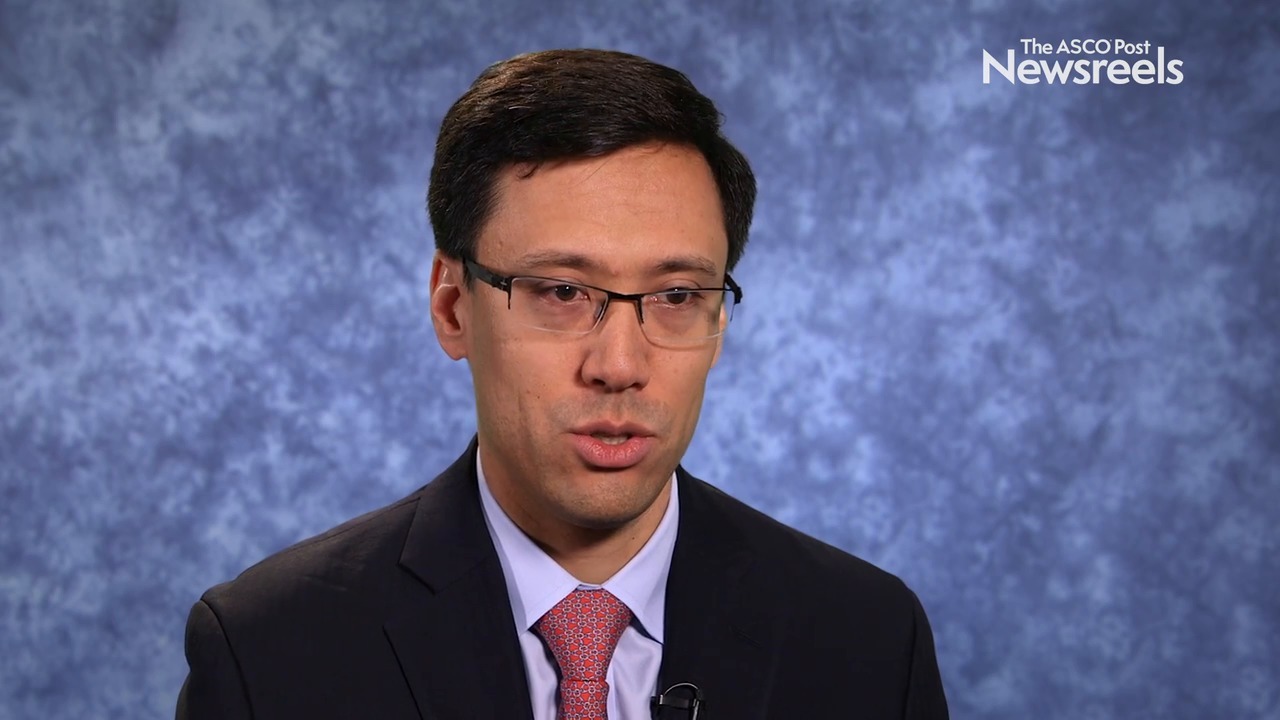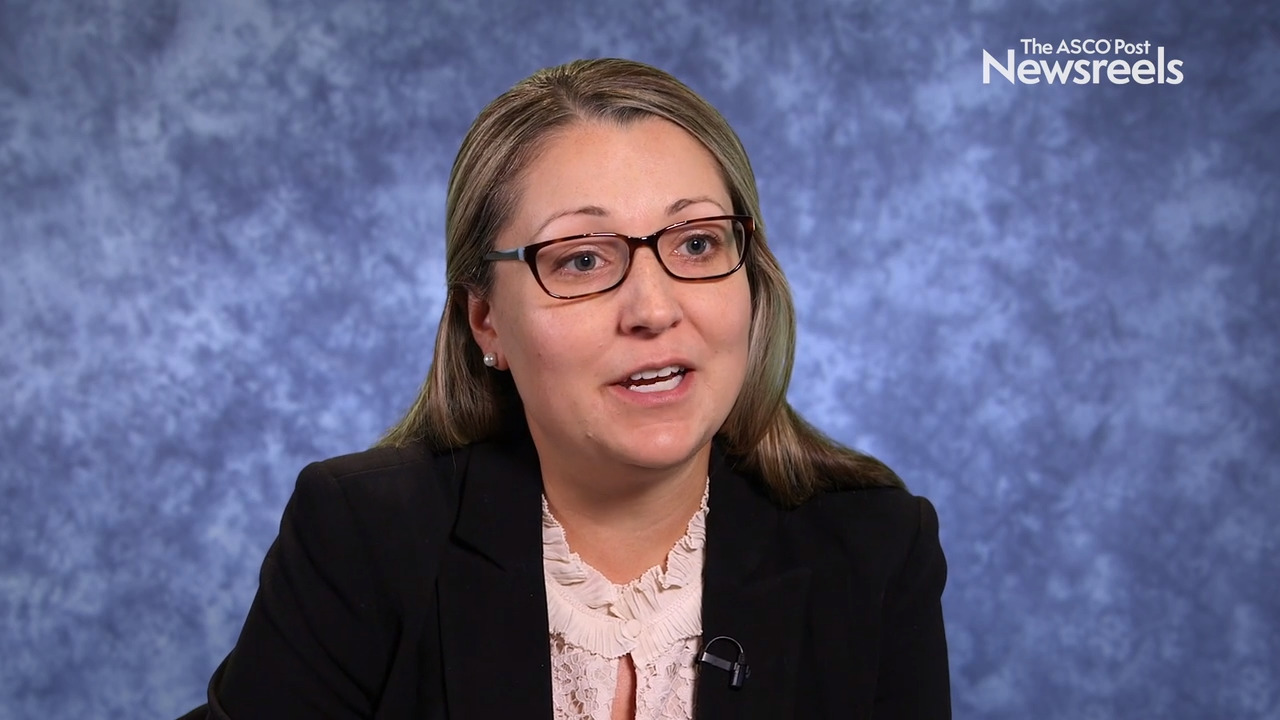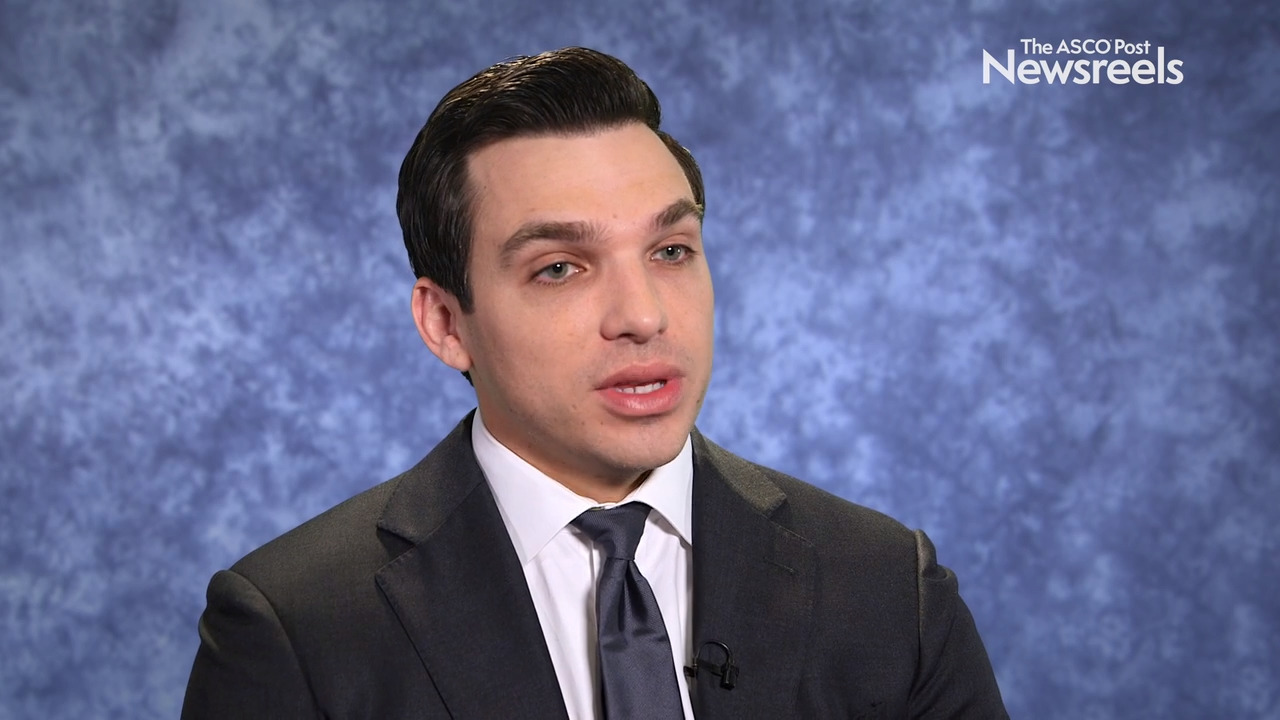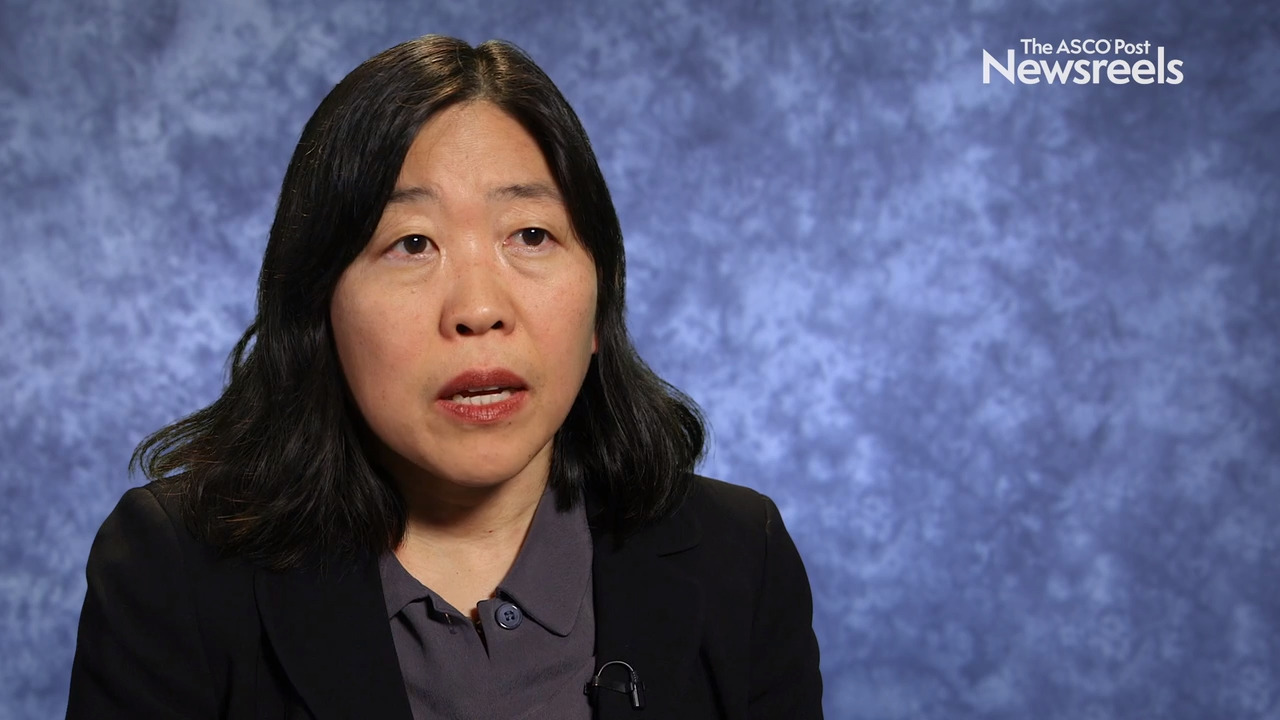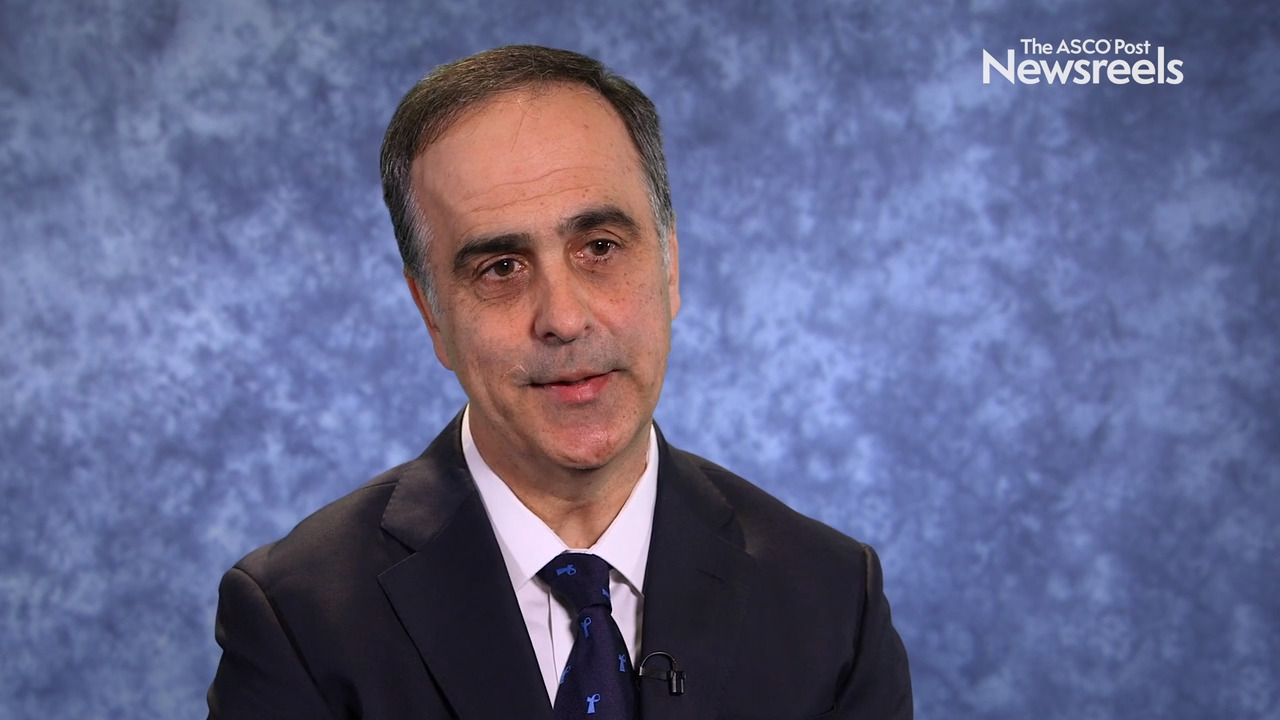Daniel M. Trifiletti, MD, on Optimizing Whole-Brain Radiotherapy Dose and Fractionation for Patients With Brain Metastases
2019 ASTRO Annual Meeting
Daniel M. Trifiletti, MD, of the Mayo Clinic, discusses study findings showing that, between two different radiation doses (30 Gy/10 fractions vs 37.5 Gy/15 fractions), there was no difference in the time to cognitive failure, tumor control, or overall survival for patients with brain metastases (Abstract 19).
Andreas Rimner, MD, of Memorial Sloan Kettering Cancer Center, discusses study findings showing that, for patients with stage III non–small cell lung cancer, durvalumab reduced the rate of and time to disease progression vs placebo and also reduced the number of new distant lesions (Abstract LBA6).
Erica H. Bell, PhD, of The Ohio State University, discusses phase III findings from a prognostic and predictive molecular subgroup analysis of radiotherapy vs radiotherapy plus procarbazine/lomustine/vincristine in high-risk low-grade gliomas (Abstract 161).
Daniel E. Spratt, MD, of the University of Michigan, discusses phase III study findings showing that 2 years of antiandrogen therapy increased cardiac and neurologic toxicities, as well as mortality from causes other than prostate cancer, in men with low levels of prostate-specific antigen after prostatectomy who received adjuvant early salvage radiotherapy (Abstract LBA1).
Sue Sun Yom, MD, PhD, of the University of California, San Francisco, discusses phase II results showing that swallowing-related quality of life after deintensified chemoradiation therapy may improve in patients with p16-positive, nonsmoking-associated, locoregionally advanced disease (Abstract LBA10).
Andrew Kneebone, MD, of Royal North Shore Hospital, discusses phase III study findings showing that at 5 years, biochemical control was similar between adjuvant and early salvage radiotherapies, the latter sparing half of the men potential side effects of radiotherapy without any significant compromise in outcome (Abstract 77).
